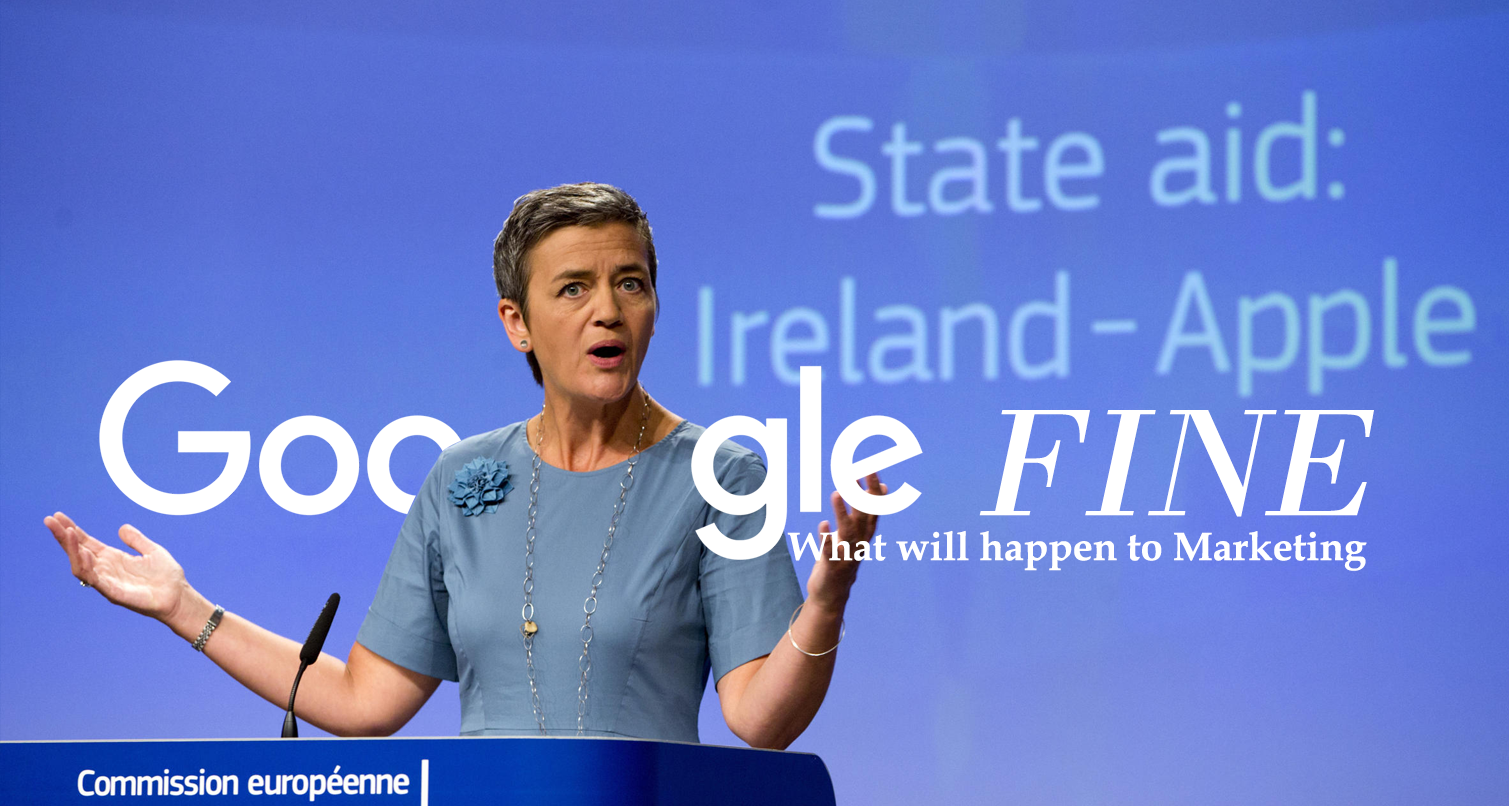For the past two weeks, many companies have discussed Google’s record fine by the EU’s European Commission. Whether the companies are within the product industry or in the online marketing industry, the buzz around the record-breaking fine has been great.
Many opinions have risen due to the conflict between the European Union and the US based internet-related company. The opinions of Marketers and the marketing industry haven’t been very well fleshed out, although it is obvious that many fear what could happen.
Why fine Google?
The European Commission has considered Google, and the rest of the internet giants such as Facebook and Amazon, to have abused its dominance by denying a competitive market.
- Advertisement -
It is accusing Google’s online shopping service, which shows products and prices on top of their search engine, of not showing enough non-paid* items. It claims “Google’s strategy for its comparison shopping service wasn’t just about attracting customers by making its product better than those of its rivals. Instead, Google abused its market dominance as a search engine by promoting its own comparison shopping service in its search results, and demoting those of competitors.”
This means that the EU feels that real competition has been decreased, or basically destroyed, due to their shopping service.
Google has 90 days to stop the shopping service, or fix it, or else risk paying 5% of their parent company’s daily income. This has been estimated to be around 10.6 million a day.
*non-advertised and organic
The possible effects to online marketing
While the actual effects of the fine and the demands of the EU would depend on Google’s official move, there are only a few possible moves the internet giant can make.
- Pay Up Daily
Google does have a choice to simple choice of simply paying, but this is obviously what they will avoid. Profit makes the world go around and giving up profit for an unlimited amount of years would be too much to bear, even for one of the world’s biggest companies.
- Pay Up and Change
Paying the record-breaking 2.4 billion Euro fine may be easy for the internet giant, change may not be easy for marketers both in the EU and out.
By accepting the European Commission’s conditions, Google would have 90 days to basically restart their shopping tab. What this could mean for marketers is that online ads for the shopping service, and even for the rest of Google’s AdWords and AdSense, and the tactics needed will have to change.
Marketers may either have to pay heavier fees to be featured on smaller spaces, or lessen focus on search marketing due to a weaker effect. This action could drastically change how marketers currently use Google’s search engine.
- Appeal and disagree with the charges
This is a more likely move, more so since their spokesperson stated “we respectfully disagree with the conclusions announced today. We will review the Commission’s decision in detail as we consider an appeal, and we look forward to continuing to make our case.”
The effects of this would entirely depend on the outcome of the case, although the EU seems very confident in their 7-year investigation of the company.
If Google wins, then nothing will really change in search marketing although it would be smart for the company to change their algorithms slightly. If the EU wins, then massive changes could be forced on Google. The changes may not be well-handled by Google and could cause a major move for marketers, leaving Google for its competitors.
- Shut it Down
While the overall fine can be paid easily by Google, the EU may not anticipate this move.
Google does have the option, and ability, to simply delete the shopping search from Europe and countries under the EU charter. It would save them many possible future hardships with the European Union and future fines.
We’ve seen Google do this before, when they shut down Google News in Spain due to a new law passed in 2014.
While it may not affect marketers who are focused on countries outside of Europe, the change would be felt to companies that do. The deletion of the shopping service could make marketers look for new avenues to reach consumers online, most likely moving to increasing spending on Facebook ads. Retail websites may have a more difficult time trying to catch up with retail giants such as Amazon and eBay without Google’s help.
The possible effects of the EU fine and Google’s choice are still undecided, but the current predictions could lead to some major changes in the online marketing world.
How do you think Google will react? Let us know in the comments below.








